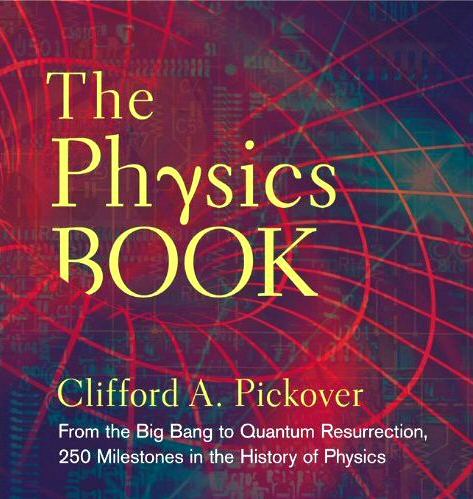
 Amazon.Com
and
Bn.Com Amazon.Com
and
Bn.Com

"Pickover contemplates realms beyond our known reality."
|
250 Milestones in the History of Physics
|
 Boomerang |
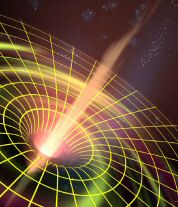 Black Holes |
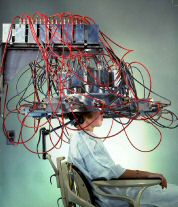 Antimatter |
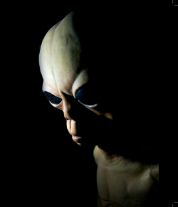 Fermi Paradox |
 Curveball |
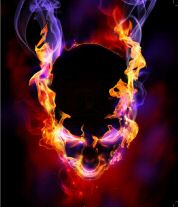 Laplace's Demon |
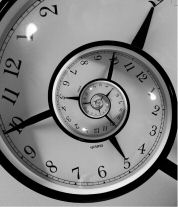 Special Relativity |
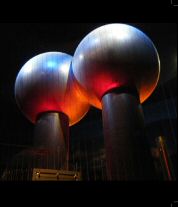 Van de Graaff |
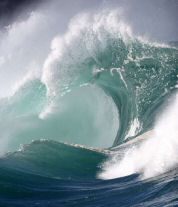 Rogue Waves |
 Pulley |
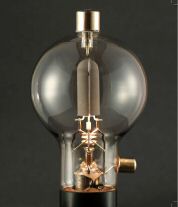 Vacuum Tube |
 Archimedes Law |
 Hourglass |
 Pauli's Exclusion |
 Gears |
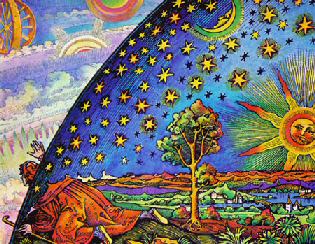
"Bucky Fuller thought big, Arthur C. Clarke thinks big, but Cliff Pickover outdoes them both." -- WIRED "A perpetual idea machine, Clifford Pickover is one of the most creative, original thinkers in the world today." -- Journal of Recreational Mathematics Reviews of The Physics Book
|
Pickover's timeline covers such engaging and diverse topics as dark energy, parallel universes, the Doppler effect, Maxwell's demon, and the rings of Saturn. Notable formulas and physics concepts accompany fascinating real-world applications and facts about the world's greatest and most intriguing minds, including Isaac Newton, James Clerk Maxwell, Marie Curie, Albert Einstein, Richard Feynman, and Stephen Hawking. Chronologically organized, each entry consists of a short summary and one or more stunning full-color images, while the "Notes and Further Reading" section provides resources for more in-depth study. As Pickover writes, "physics cultivates a perpetual state of wonder about the limits of thoughts, the workings of the universe, and our place in the vast space-time landscape that we call home."
|
(Embedded youtubes primarily from the amazing Perimeter Institute)
|
Frequenty Asked Questions
|
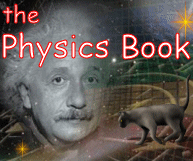 How many of these great minds do you recognize?
How many of these great minds do you recognize?
Georges Lemaitre (1894-1966), Edwin Hubble (1889-1953), Fred Hoyle (1915-2001) Francis Perrin (1901-1992) Michael D. Coe (b. 1929), John B. Carlson (b. 1945) Alessandro Giuseppe Antonio Anastasio Volta (1745-1827) Archimedes (c. 287 BC - c. 212 BC) Marcus Vitruvius Pollio (c. 87 BC- c. 15 BC) Eratosthenes of Cyrene (c. 276 BC- c. 195 BC) Valerios Stais (1857-1923) Hero (or Heron) of Alexandria (c. 10- c. 70 AD), Marcus Vitruvius Pollio (c. 85 BC- c. 15 BC), Ctesibius (c. 285-c. 222 BC) Niccolo Fontana Tartaglia (1500-1557), Han Shizhong (1089-1151) Bhaskara II (1114 - 1185), Richard Phillips Feynman (1918-1988) Abu Ali al-Hasan ibn al-Haytham (965-1039), Kamal al-Din al-Farisi (1267-c. 1320), Theodoric of Freiberg (c. 1250-c. 1310) Ambrogio Lorenzetti (1290-1348) Nicolaus Copernicus (1473-1543) Johannes Kepler (1571-1630) William Gilbert (1544-1603) Hans Lippershey (1570-1619), Galileo Galilei (1564-1642) Giovanni Domenico Cassini (1625-1712) Christiaan Huygens (1629-1695) Willebrord Snellius (1580-1626) Pierre Gassendi (1592 -1655), Alfred Angot (1848-1924), Olof Petrus Hiorter (1696-1750), Anders Celsius (1701-1744) Evangelista Torricelli (1608-1647), Blaise Pascal (1623-1662) Rene Descartes (1596-1650) Robert Hooke (1635-1703), Augustin Louis Cauchy (1789-1857) Otto von Guericke (1602-1686), Robert Jemison Van de Graaff, (1901-1967) Robert Boyle (1627-1691) Guillaume Amontons (1663-1705), Leonardo da Vinci (1452-1519), Charles-Augustin de Coulomb (1736-1806) Giovanni Domenico Cassini (1625-1712) Isaac Newton (1642-1727) Christiaan Huygens (1629-1695) John Shore (c. 1662-1752), Hermann von Helmholtz (1821-1894), Jules Antoine Lissajous (1822-1880), Rudolph Koenig (1832-1901) Daniel Bernoulli (1700-1782) Pieter van Musschenbroek (1692-1761), Ewald Georg von Kleist (1700-1748), Jean-Antoine Nollet (1700-1770), Benjamin Franklin (1706-1790) Benjamin Franklin (1706-1790) Torbern Olof Bergman (1735-1784), James Cook (1728-1779) Johann Elert Bode (1747-1826), Johann Daniel Titius (1729-1796) Georg Christoph Lichtenberg (1742-1799) Edward Pigott (1753-1825), Johann Elert Bode (1747-1826), Charles Messier (1730 - 1817) Charles-Augustin Coulomb (1736-1806) Jacques Alexandre Cesar Charles (1746-1823), Joseph Louis Gay-Lussac (1778-1850) Immanuel Kant (1724-1804), Pierre-Simon Laplace (1749-1827) Henry Cavendish (1731-1810) Luigi Galvani (1737-1798), Alessandro Volta (1745-1827), Gaston Plante (1834-1889) Christiaan Huygens (1629-1695), Isaac Newton (1642-1727), Thomas Young (1773-1829) William Henry (1775-1836) Jean Baptiste Joseph Fourier (1768-1830) John Dalton (1766-1844) Amedeo Avogadro (1776-1856) Joseph von Fraunhofer (1787-1826) Pierre-Simon, Marquis de Laplace (1749-1827) David Brewster (1781-1868) Rene-Theophile-Hyacinthe Laennec (1781-1826) Jean Baptiste Joseph Fourier (1768-1830) Joseph Fourier (1768-1830), Svante August Arrhenius (1859-1927), John Tyndall (1820 -1893) Nicolas Leonard Sadi Carnot (1796 -1832) Andre-Marie Ampere (1775-1836), Hans Christian Orsted (1777-1851) Jules Sebastien Cesar Dumont d’Urville (1790-1842) Georg Ohm (1787-1854) Robert Brown (1773-1858), Jean-Baptiste Perrin (1870-1942), Albert Einstein (1879-1955) Thomas Graham (1805-1869) Michael Faraday (1791-1867) Heinrich Wilhelm Matthaus Olbers (1758-1840) John Scott Russell (1808-1882) Freidrich Wilhelm Bessel (1784-1846) William Robert Grove (1811- 1896) Jean Louis Marie Poiseuille (1797-1869) James Prescott Joule (1818-1889) Jean-Daniel Colladon (1802-1893), Charles Kuen Kao (b. 1933), George Alfred Hockham (b. 1938) Christian Andreas Doppler (1803-1853, Christophorus Henricus Diedericus Buys Ballot (1817-1890) Richard Turner (c. 1798-1881), Decimus Burton (1800-1881) Gustav Robert Kirchhoff (1824-1887) John Couch Adams (1819-1892), Urbain Jean Joseph Le Verrier (1811-1877), Johann Gottfried Galle (1812-1910) Rudolph Clausius (1822-1888), Ludwig Boltzmann (1844-1906) Michael Faraday (1791-1867), Gabor A. Somorjai (b. 1935) George Gabriel Stokes (1819-1903) Jean Bernard Leon Foucault (1819-1868), Johann Gottlieb Friedrich von Bohnenberger (1765-1831) Christophorus Henricus Diedericus Buys Ballot (1817-1890) James Clerk Maxwell (1831-1879), Ludwig Eduard Boltzmann (1844-1906) Frederick William Herschel (1738-1822), Johann Wilhelm Ritter (1776-1810), James Clerk Maxwell (1831-1879), Heinrich Rudolf Hertz (1857-1894) Lorand von Eotvos (1848-1919) Alfred Bernhard Nobel (1833 -1896) James Clerk Maxwell (1831-1879), Leon Nicolas Brillouin (1889-1969) Fredrick Ernest Goldsmith (1856-1939), Heinrich Gustav Magnus (1802-1870) John William Strutt, 3rd Baron Rayleigh (1842-1919) William Crookes (1832-1919) Ludwig Eduard Boltzmann (1844-1906) Joseph Wilson Swan (1828-1914), Thomas Alva Edison (1847-1931) William Crookes (1832-1919) Edwin Herbert Hall (1855-1938), Klaus von Klitzing (b. 1943) Paul-Jacques Curie (1856-1941), Pierre Curie (1859-1906) Hans Christian Oersted (1777-1851), Johann Carl Friedrich Gauss (1777-1855), Jacques-Arsene d'Arsonval (1851-1940) Jules Gabriel Verne (1828-1905), Daniel Joseph Kelly O'Connell (1896-1982) Albert Abraham Michelson (1852-1931) and Edward Williams Morley (1838-1923) Louis Lefevre-Gineau (1751-1829) Nikola Tesla (1856-1943) James Dewar (1842-1923), Reinhold Burger (1866-1954) Wilhelm Conrad Rontgen (1845-1923), Max von Laue (1879-1960) Abel Niepce de Saint-Victor (1805-1870), Antoine Henri Becquerel (1852-1908), Pierre Curie (1859-1906), Marie Sklodowska Curie (1867-1934), Ernest Rutherford (1871-1937), Frederick Soddy (1877-1956) Joseph John "J. J." Thomson (1856-1940) Wilhelm Wien (1864-1928) Max Karl Ernst Ludwig Planck (1858-1947), Gustav Robert Kirchhoff (1824-1887) Edwin C. Prescott (1841-1931) Robert Williams Wood (1868-1955) Konstantin Eduardovich Tsiolkovsky (1857-1935) Hendrik Antoon Lorentz (1853-1928), Walter Kaufmann (1871-1947), Albert Einstein (1879-1955) Albert Einstein (1879-1955) Robert Adams Paterson (1829-1904) Walther Nernst (1864-1941) Lee De Forest (1873-1961) Wilhelm Conrad Rontgen (1845-1923), Nikola Tesla (1856-1943), Arnold Johannes Wilhelm Sommerfeld (1868-1951) Theodor Wulf (1868-1946), Victor Francis Hess (1883-1964) Heike Kamerlingh Onnes (1853-1926), John Bardeen (1908-1991), Karl Alexander Muller (b. 1927), Leon N. Cooper (b. 1930), John Robert Schrieffer (b. 1931), Johannes Georg Bednorz (b. 1950) Ernest Rutherford (1871-1937) Henri Benard, (1874-1939), Theodore von Karman (1881-1963) Charles Thomson Rees Wilson (1869-1959), Alexander Langsdorf (1912-1996), Donald Arthur Glaser (b. 1926) Henrietta Swan Leavitt (1868-1921) William Henry Bragg (1862-1942), William Lawrence Bragg (1890-1971) Niels Henrik David Bohr (1885-1962) Robert A. Millikan (1868-1953) Theodor Franz Eduard Kaluza (1885-1954), John Henry Schwarz (b. 1941), Michael Boris Green (b. 1946) Otto Stern (1888-1969), Walter Gerlach (1889-1979) Georges Claude (1870-1960) Louis-Victor-Pierre-Raymond, 7th duc de Broglie (1892-1987); Clinton Joseph Davisson (1881-1958); Lester Halbert Germer (1896-1971) Wolfgang Ernst Pauli (1900-1958) Erwin Rudolf Josef Alexander Schrodinger (1887-1961) Werner Heisenberg (1901-1976) Niels Henrik David Bohr (1885-1962) Paul Adrien Maurice Dirac (1902-1984) George Gamow (1904-1968), Ronald W. Gurney (1898-1953), Edward Uhler Condon (1902-1974) Edwin Powell Hubble (1889-1953) Ernest Orlando Lawrence (1901-1958) Subrahmanyan Chandrasekhar (1910-1995) Kenneth Strickfadden (1896-1984) Sir James Chadwick (1891-1974), Irene Joliot-Curie (1897-1956), Jean Frederic Joliot-Curie (1900-1958) Paul Dirac (1902-1984), Carl Anderson (1905-1991) Fritz Zwicky (1898-1974), Vera Cooper Rubin (b. 1928) Fritz Zwicky (1898-1974), Jocelyn Bell Burnell, (b. 1943), Wilhelm Heinrich Walter Baade (1893-1960) Igor Yevgenyevich Tamm (1895-1971), Pavel Alekseyevich Cherenkov (1904-1990), Ilya Mikhailovich Frank (1908-1990) Albert Einstein (1879-1955), Boris Podolsky (1896-1966), Nathan Rosen (1909-1995), Alain Aspect (b. 1947), Erwin Rudolf Josef Alexander Schrodinger (1887-1961) Pyotr Leonidovich Kapitsa (1894-1984), Fritz Wolfgang London (1900-1954), John "Jack" Frank Allen (1908-2001), Donald Misener (1911-1996) Isidor Isaac Rabi (1898-1988), Felix Bloch (1905-1983), Edward Mills Purcell (1912-1997), Richard Robert Ernst (b. 1933), Raymond Vahan Damadian (b. 1936) Lise Meitner (1878-1968), Albert Einstein (1879-1955) Leo Szilard (1898-1964), Enrico Fermi (1901-1954), Otto Robert Frisch (1904-1979) Miles V. Sullivan (b. 1917) J. Robert Oppenheimer (1904 -1967), Paul Warfield Tibbets, Jr. (1915-2007) Fred Hoyle (1915-2001) Julius Edgar Lilienfeld (1882-1963) John Bardeen (1908-1991), Walter Houser Brattain (1902-1987), William Bradford Shockley (1910-1989), Charles Elwood "Chuck" Yeager (b. 1923) Dennis Gabor (1900-1979) Paul Adrien Maurice Dirac (1902-1984), Sin-Itiro Tomonaga (1906-1979), Richard Phillips Feynman (1918-1988), Julian Seymour Schwinger (1918-1994) Kenneth Snelson (b. 1927), Richard Buckminster "Bucky" Fuller (1895-1983) Hendrik Brugt Gerhard Casimir (1909-2000), Evgeny Mikhailovich Lifshitz (1915-1985 Albert Einstein (1879-1955), Kurt Godel (1906-1978), Kip Stephen Thorne (b. 1940) Willard Frank Libby (1908-1980) Enrico Fermi (1901-1954), Frank Drake (b. 1930) Alexandre-Edmond Becquerel (1820-1891), Calvin Souther Fuller (1902-1994) Martin Gardner (1914-2010) Max Knoll (1897-1969), Ernst August Friedrich Ruska (1906-1988), Erwin Wilhelm Muller (1911-1977), Albert Victor Crewe (1927-2009) Louis Essen (1908-1997) Hugh Everett III (1930-1982), Max Tegmark (b. 1967) Wolfgang Ernst Pauli (1900-1958), Frederick Reines (1918-1998), Clyde Lorrain Cowan, Jr. (1919-1974) Igor Yevgenyevich Tamm (1895-1971), Lev Andreevich Artsimovich (1909-1973), Andrei Dmitrievich Sakharov (1921-1989) Jack St. Clair Kilby (1923-2005), Robert Norton Noyce (1927-1990) John Frederick William Herschel (1792-1871), William Alison Anders (b. 1933) William Olaf Stapledon (1886-1950) Freeman John Dyson (b. 1923) Charles Hard Townes (b. 1915), Theodore Harold "Ted" Maiman (1927-2007) Joseph William Kittinger II (b. 1928) Robert Henry Dicke (1916- 1997), Brandon Carter (b. 1942) Murray Gell-Mann (b. 1929), Sheldon Lee Glashow (b. 1932), George Zweig (b. 1937), Jacques Salomon Hadamard (1865-1963), Jules Henri Poincare (1854-1912), Edward Norton Lorenz (1917-2008) Maarten Schmidt (b. 1929) Edward Craven Walker (1918-2000) Robert Brout (b., 1928), Peter Ware Higgs (b. 1929), Francois Englert (b. 1932) Murray Gell-Mann (b. 1929), George Zweig (b. 1937) James Watson Cronin (b. 1931), Val Logsdon Fitch (b. 1923) John Stewart Bell (1928-1990) Arno Allan Penzias (b. 1933), Robert Woodrow Wilson (b. 1936) Paul Ulrich Villard (1860-1934) Konrad Zuse (1910-1995), Edward Fredkin (b. 1934), Stephen Wolfram (b. 1959), Max Tegmark (b. 1967) Gerald Feinberg (1933-1992) Edme Mariotte (c. 1620-1684) Willem Gravesande (1688-1742), Simon Prebble (b. 1942) Victor Georgievich Veselago (b. 1929) Ernst Gabor Straus (1922-1983), Victor L. Klee, Jr. (1925-2007), George Tokarsky (b. 1946) Bruno Zumino (b. 1923), Bunji Sakita (1930-2002), Julius Wess (1934-2007) Alan Harvey Guth (b. 1947) Richard Phillips Feynman (1918-1988), David Elieser Deutsch (b. 1953) Roger Penrose (b. 1931), Dan Shechtman (b. 1941) Michael Boris Green (b. 1946), John Henry Schwarz (b. 1941) Richard Buckminster "Bucky" Fuller (1895-1983), Robert Floyd Curl, Jr. (b. 1933), Harold (Harry) Walter Kroto (b. 1939), Richard Errett Smalley (1943-2005) Hans Moravec (b. 1948), Max Tegmark (b. 1967) Per Bak (1948-2002) Kip Stephen Thorne (b. 1940) Lyman Strong Spitzer, Jr. (1914-1997) Stephen William Hawking (b. 1942) Charles H. Bennett (b. 1943) Stephen William Hawking (b. 1942) Satyendra Nath Bose (1894-1974), Albert Einstein (1879-1955), Eric Allin Cornell (b. 1961), Carl Edwin Wieman (b. 1951) Lisa Randall (b. 1962), Raman Sundrum (b. 1964) Joshua Michael Aaron Ryder Wurman (b. October 1, 1960) Oliver Heaviside (1850-1925), Arthur Edwin Kennelly (1861-1939), Marchese Guglielmo Marconi (1874-1937) Robert R. Caldwell (b. 1965) Clive Staples "Jack" Lewis (1898-1963), Gerrit L. Verschuur (b. 1937), Lawrence M. Krauss (b. 1954) Fred Adams (b. 1961), Stephen William Hawking (b. 1942) Ludwig Eduard Boltzmann (1844-1906)